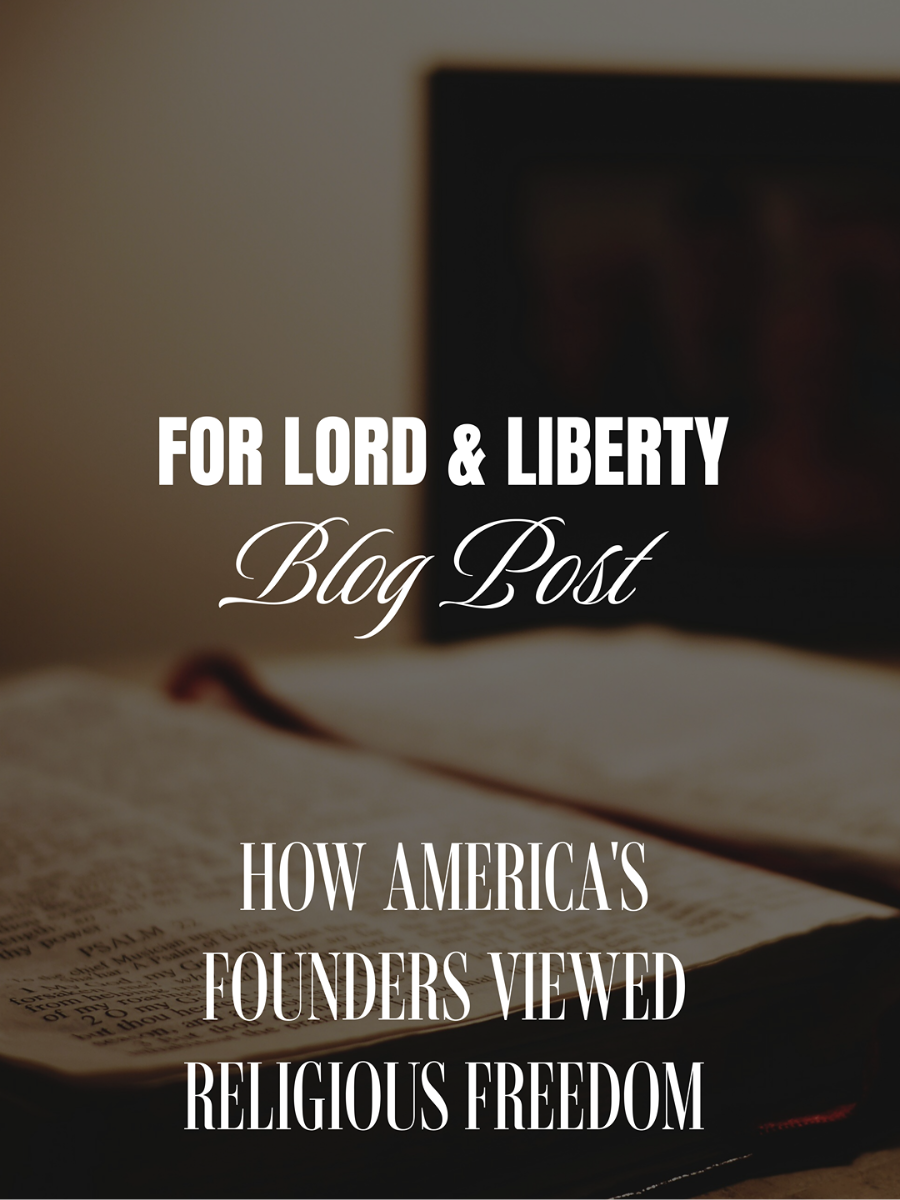
How America’s Founders Viewed Religious Freedom
Share
Religious freedom is one of the cornerstones of the American Republic, enshrined in foundational documents like the Constitution and Bill of Rights. But how did the Founding Fathers view religious liberty, and what role did faith play in shaping this concept? Understanding these perspectives at For Lord & Liberty is critical to appreciating how faith and patriotism built the United States. This blog post explores the founders' vision for religious freedom and how their commitment to biblical principles continues to influence America’s ideals today.
The Roots of Religious Freedom in the Colonies
Before the American Revolution, many colonists sought refuge from religious persecution in Europe. Colonies like Pennsylvania, Rhode Island, and Maryland were founded with religious tolerance in mind, welcoming a diversity of faiths. These experiences shaped the founders' view that individual liberty must extend to religious belief and practice. However, freedom wasn’t simply pragmatic—it was deeply rooted in biblical teachings on human dignity and conscience. The founders understood that a strong nation required more than just political governance; it needed to protect the moral and spiritual values that foster civic responsibility. They believed that individuals should have the right to worship freely without fear of government intervention, ensuring faith could thrive in a society rooted in personal responsibility and moral order.

The Influence of Faith on Key Founders
The Founding Fathers' religious convictions were not monolithic, ranging from devout Christianity to Deism, but they all acknowledged the importance of faith in society. Leaders like George Washington and John Adams emphasized the role of religion and morality in shaping a virtuous citizenry. In Washington’s Farewell Address, he cautioned that religion and morality are indispensable supports for political prosperity, implying that faith played a crucial role in maintaining liberty. Similarly, though a Deist, Thomas Jefferson strongly advocated for religious freedom. As the author of the Virginia Statute for Religious Freedom (1786), Jefferson argued that coerced faith is no faith at all. This statute became a model for the First Amendment, underscoring the founders' belief that government and church must remain separate, not to diminish faith but to protect it.
Religious Freedom and the First Amendment
The First Amendment to the U.S. Constitution guarantees that “Congress shall make no law respecting an establishment of religion or prohibiting the free exercise thereof.” This clause reflects the founders’ desire to prevent the establishment of a state-sponsored church while safeguarding the individual right to worship. Their goal was not to remove faith from public life but to ensure that religious diversity could flourish without government interference. The founders believed that religion, freely practiced, would foster virtue and civic engagement. They envisioned a society where people of different faiths could coexist and contribute to the nation's moral fabric. This commitment to religious liberty became a defining feature of the American experiment, differentiating the new republic from nations with state-imposed religions.
Faith, Patriotism, and Personal Responsibility
At For Lord & Liberty, we emphasize the enduring connection between faith, patriotism, and freedom. The founders recognized that the ability to practice one’s faith freely fostered a sense of personal responsibility and commitment to the common good. They believed a society rooted in biblical principles would cultivate citizens pursuing justice and truth. Religious freedom allowed individuals to act according to their consciences, shaping laws and governance around shared moral values. For the founders, patriotism was not just about allegiance to the state but also a reflection of moral duty—an extension of faith lived out in public life. This belief that faith strengthens liberty resonates with Americans today, reminding us that freedom is a gift and a responsibility.
Challenges to Religious Freedom Throughout History
Despite the founders' noble ideals, the path to religious freedom has not always been smooth. Yet, over time, the principles established by the founders paved the way for greater equal rights. The nation's commitment to religious liberty has remained a beacon, inspiring other countries to follow its example. As religious freedom faces new challenges, revisiting the founders' original vision is crucial. Their belief in faith’s essential role in maintaining a moral and just society offers timeless lessons for navigating contemporary debates around the intersection of religion and public life.
Preserving Religious Freedom for Future Generations
The founders viewed religious freedom as both a moral imperative and a practical necessity for building a strong nation. They understood that faith and freedom are intertwined. Liberty allows faith to flourish, and faith, in turn, strengthens civic virtue. At For Lord & Liberty, we celebrate these founding ideals by promoting a deeper understanding of how biblical principles and patriotism laid the groundwork for America’s enduring commitment to religious liberty. As we reflect on the founders' vision, we are reminded that preserving faith and freedom is a responsibility for all citizens. By embracing the founders' legacy of faith-based freedom, we ensure that future generations can continue to enjoy the blessings of liberty.
This exploration of how America’s founders viewed religious freedom sheds light on the powerful connection between faith, freedom, and patriotism. Understanding their vision encourages us to protect and nurture the liberties that define our nation, staying true to the values that shaped the American experiment. At For Lord & Liberty, we honor this legacy by promoting products and messages celebrating the enduring relationship between faith and patriotism—the foundation of a mighty nation.
